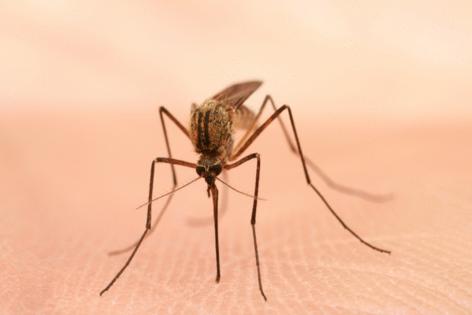Mosquito season begins in South Florida. Is climate change making it worse?
Published in Science & Technology News
MIAMI — As Miami-Dade marks the unofficial beginning of mosquito season with a Wednesday event to help residents “Fight the Bite”, the Herald spoke to the head of the Mosquito Control Division, Dr. John-Paul Mutebi, to answer readers’ questions about the links to climate change.
Does climate change affect how many mosquitoes we have here, or which disease they transmit?
Dr. John-Paul Mutebi: If South Florida gets warmer, it is more hospitable to new mosquito species that are being introduced – they could come in cargo from South America, like potted plants where the mosquitoes may lay eggs, and some hitch hike on a boat or aircraft, because the higher temperature is really good for their survival. They’re cold-blooded, so they depend on high temperatures, so that may improve their survival in a new environment.
When it comes to disease transmission, there are two aspects: One is extending the range they’ll be able to invade - if colder latitudes are warmer now, they are able to invade. The other one is the extension of mosquito season, so they stay active longer. And that is more dangerous, because usually at the end of the season, that’s when we have the largest number of infected mosquitoes.
Which diseases are you worried about?
Dr. Mutebi: Now we have dengue, but we are working on it, and pretty soon it is going to disappear too. There’s Eastern equine and St. Louis encephalitis and yellow fever. Then there’s chikungunya – now that one I’m much more afraid of, because it tends to put a lot of people in the hospital. Usually, between 70 and 90% of people who get infected are going to end up with severe symptoms. So that one is much more severe, we keep on watching it.
The Zika outbreak in South Florida in 2016, was driven by the ease of transportation – it was introduced by humans that we are infected somewhere else – because people can get infected from one part of the world and 24 hours later they are on the other side of the world. We got it under control, but it can come back because of the same system.
What can we do as residents to keep mosquito-transmitted diseases at bay?
Dr. Mutebi: One, please don’t breed mosquitoes on your property. No discarding cans or any kind of structures that can harbor water. Anything containing water, it doesn’t take long – usually within a week or two, they’ve laid their eggs and they hatched.
Residents and businesses in Miami-Dade County can also request a free inspection by calling 311, and that is always very helpful because it helps us clean up and get rid of those mosquitoes before they begin to transmit diseases.
In terms of our work, we use more than 300 mosquito traps that we monitor every week. So we capture mosquitoes, identify the species, then we plan our control measures - spraying pesticides is one way, but it depends on the species. Miami-Dade alone has 53 different mosquito species, and each has a different behavior, breeding habits, some transmit diseases and others don’t. So it is a diverse group, and a monumental task.
©2025 Miami Herald. Visit at miamiherald.com. Distributed by Tribune Content Agency, LLC.







Comments